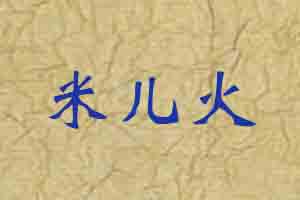“乐之所由来者尚矣”。先秦儒家乐教思想的演进可征之于儒家乐教文献。本书基于文献与思想史相结合的视角,对先秦儒家乐教文献进行了较系统、全面的考证和解读。据《尚书·尧典》载,舜作为原始社会末期部落联盟的首领,已经有意识地在氏族内部“典乐”以教育“冑子”。周公对这种源自远古时代作为“事神之道”的“礼乐之具”进行改造,“制礼作乐”、弘扬乐教,体现了周人制度理性和人文精神的萌芽。孔子自觉地担当起古文道统的传承与延续,针对先王乐教的形式化或具文化倾向进行了大量的纠偏补正工作,他主张“成于乐”,即通过音乐教化以成人、成德,实现了儒家乐教的内在转向,并努力重建传统文化经典与生活的联系。自孔子倡导儒家乐教以来,一直为后儒所坚守,孟子应之,荀子和之,不断演进,推动了儒家乐教理论的系统化,历史地形成了儒家的乐教传统。儒家乐教文献可分为应用性乐类文献、述乐类文献以及论乐类文献,内容丰富,是研究先秦社会人们生活情态的宝贵史料。先秦儒家乐教文献的生成与思想观念的发展具有历史的统一性,它经由感性的情感表达,到理性的反思,再到制度层面的定型;从心得体会式的只言片语到乐类文献的生成、结集与传播。作者认为,文献是思想的载体,思想是文献的灵魂与生成动力,二者互济互成。
"Where the joy comes from, it is still there。" The evolution of pre-Qin Confucian music education can be found in Confucian music literature。 Based on the perspective of combining literature and intellectual history, this book provides a systematic and comprehensive examination and interpretation of the pre-Qin Confucian music teaching literature。 According to the Shangshu Yaodian, Shun, as the leader of the tribal alliance at the end of the primitive society, had consciously "dianle" within the clan to educate the "冑子"。
The Duke of Zhou transformed this kind of "ritual and music tool" that originated from ancient times as the "way of doing things", "making ritual music" and promoting music and education, reflecting the germ of the rationality and humanistic spirit of the Zhou people's system。 Confucius consciously undertook the inheritance and continuation of the ancient Taoist system, and carried out a lot of correction work in view of the formalization or cultural tendency of the pre-king music teaching, he advocated "becoming in music", that is, through music education to adults and virtues, realized the inner turn of Confucian music teaching, and strived to rebuild the connection between traditional cultural classics and life。
Since Confucius advocated Confucianism, it has been adhered to by Later Confucianism, Mencius Yingzhi, Xunzi and Zhizhi, constantly evolving, promoting the systematization of Confucian music theory, and historically forming the Confucian music teaching tradition。 Confucian music teaching literature can be divided into applied music literature, music literature and music literature, which are rich in content and are valuable historical materials for studying the life conditions of people in pre-Qin society。
The generation of pre-Qin Confucian music literature and the development of ideological concepts have historical unity, which is through emotional expression, to rational reflection, and then to institutional stereotyping; From the experiential phrase to the generation, aggregation and dissemination of music literature。 The author believes that literature is the carrier of thought, and thought is the soul and generating force of literature, and the two complement each other。(AI翻译)

发表评论